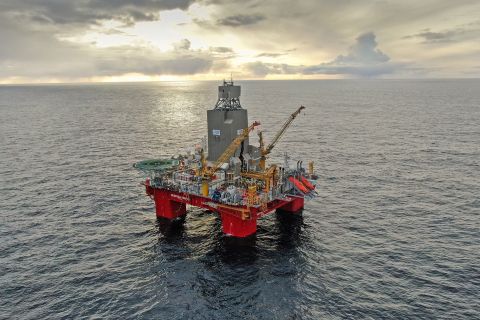
Pipeline developers, take note: the identity of “common carriers” just became (slightly) clearer.
On Jan. 6, the Texas Supreme Court issued its opinion in the Denbury Green Pipeline-Texas, LLC v. Texas Rice Land Partners, Ltd. et al. case (Texas Rice II), which had been sent back on remand in 2012 to enable lower courts to adequately test whether a “reasonable probability” exists that the pipeline in question serves the public, enabling its “common carrier” status and, in turn, the pipeline developer’s powers of eminent domain over the surface owner.
By holding in summary judgment that such a probability existed when presented with a post-construction transportation agreement with an unaffiliated customer, the court provided a helpful precedent to pipeline developers who have been waiting anxiously for more detail about the relevant factors in the court’s application of the so-called “Reasonable Probability Test.”
“Reasonable Probability Test”
The “Reasonable Probability Test” can now be summarized as:
- It must be more likely than not that the pipeline, at some point after construction, will serve the public. This enables the party exercising eminent domain to act in a constitutional manner by only condemning land to further a public use. The court made clear in Texas Rice II that this does not need to be a “substantial public interest,” as stated by the Court of Appeals for the Ninth District of Texas. It merely requires that it be “more likely than not” that someone other than the owners and its affiliates will either retain ownership of the product or sell it to a third party.
- Evidence of a third-party customer contract can be decisive with respect to this “reasonable probability.” The court noted “while post-construction contracts considered without any relevant evidence would normally establish only a pre-construction possibility of future public use, such contracts can be relevant to showing a reasonable probability that, ‘at some point after construction,’ a pipeline will service the public.”
- Proximity and ease of access to potential unaffiliated customers are also relevant. Factors such as the proximity of unaffiliated customers, lack of competition and the “regulatory atmosphere” are also to be considered by the court.
- The subjective intent of the constructing party at the time of construction is not conclusive in proving this “reasonable probability” in either direction. Contrary to the opinion of the Court of Appeals for the Ninth District of Texas, a fact-finder should not determine common carrier status based on the constructing party’s intent to serve a third party at the time of planning to construct the pipeline. The focus should instead be on whether a third-party customer actually exists or may someday exist that will end up owning or selling the transported product. In addition, evidence of the intent to serve the public can date from after the pipeline’s construction.
- All evidence will likely be considered in the light most favorable to the surface owner. Every “reasonable inference” will be to the surface owner’s favor. As a reminder, once challenged the burden is on the pipeline company to prove up this reasonable probability.
Unresolved issues
Certain key points remain unresolved by Texas Rice II:
- What is an “unaffiliated” entity? While Justice Wainwright’s concurrence in Texas Rice I provides some guidance on this matter, it is still not made clear by this opinion or a reading of the Texas Natural Resources Code. Thus, whether a 50:50 joint venture or limited partnership interest would constitute an “unaffiliated” customer is uncertain.
- Will this apply to crude oil pipelines (or natural gas pipelines)? Texas Rice I explicitly stated that its holding only applied to CO2 pipelines. It is likely (but not certain) that it and Texas Rice II also apply to crude oil pipelines, which are similarly governed by the Texas Natural Resources Code. More unclear is whether the Reasonable Probability Test will be extended to natural gas pipelines, which are governed by the Texas Utilities Code.
- Mineral Interest Holders as “affiliates.” The court expressly states that it expresses “no opinion on whether contracts between affiliated entities that may benefit unaffiliated working interest owners satisfy the [Reasonable Probability Test].”
Going forward
While Texas Rice II provides firmer footing to pipeline developers, it does not mark a return to the pre-Texas Rice I era, when a pipeline developer wishing to exercise eminent domain could simply “check the box” on a form provided by the Texas Railroad Commission.
It remains imperative to understand that a pipeline transporting product between only affiliates runs the risk of a successful challenge by a litigious surface owner. If uncertainty exists, the pipeline developer should take additional steps to identify potential third-party customers and markets, and create a record that shows that it is more likely than not that a third party will in fact use this pipeline or own or sell the product transported by it.
If not, unforeseen legal costs and payments to surface owners may arise or, even worse, the project itself could be put in jeopardy.
Aaron Roffwarg is the head of Bracewell LLP’s firm-wide real estate and infrastructure practice group. Aaron Carpenter, an attorney in Bracewell’s Houston office, focuses on a wide variety of transactions.
Recommended Reading
US Drillers Add Oil, Gas Rigs for First Time in Five Weeks
2024-04-19 - The oil and gas rig count, an early indicator of future output, rose by two to 619 in the week to April 19.
Strike Energy Updates 3D Seismic Acquisition in Perth Basin
2024-04-19 - Strike Energy completed its 3D seismic acquisition of Ocean Hill on schedule and under budget, the company said.
Santos’ Pikka Phase 1 in Alaska to Deliver First Oil by 2026
2024-04-18 - Australia's Santos expects first oil to flow from the 80,000 bbl/d Pikka Phase 1 project in Alaska by 2026, diversifying Santos' portfolio and reducing geographic concentration risk.
Iraq to Seek Bids for Oil, Gas Contracts April 27
2024-04-18 - Iraq will auction 30 new oil and gas projects in two licensing rounds distributed across the country.
Vår Energi Hits Oil with Ringhorne North
2024-04-17 - Vår Energi’s North Sea discovery de-risks drilling prospects in the area and could be tied back to Balder area infrastructure.



